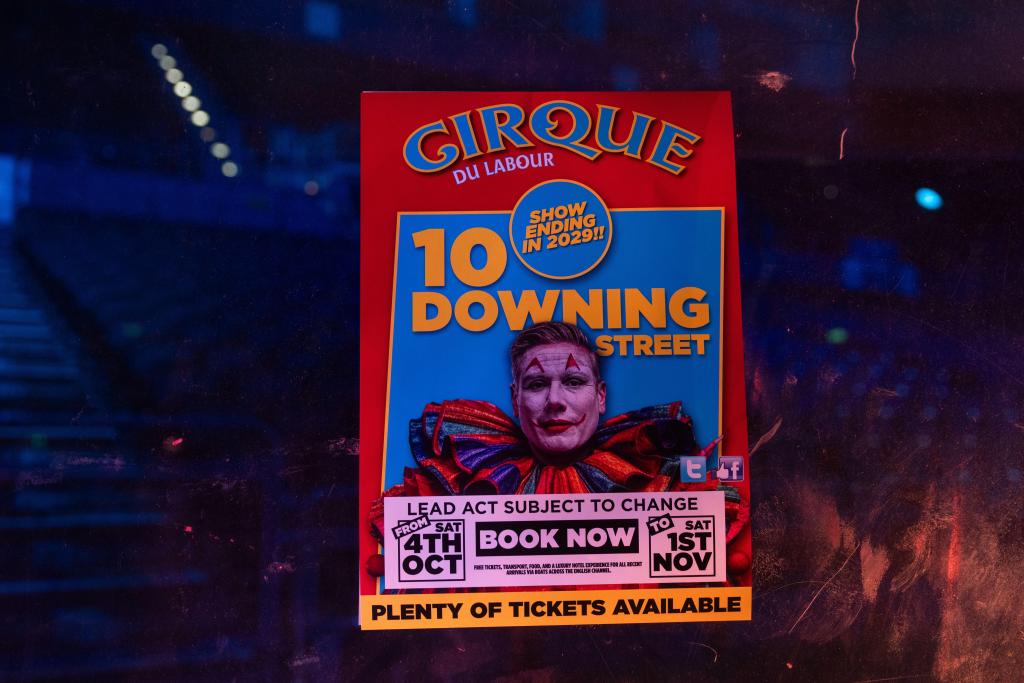‘The Amazon Killer’, screams the Sun front page today. ‘Total disgrace he was able to buy knife on Amazon,’ says the Daily Mirror. The backlash to the news that Southport murderer Axel Rudakubana brought his weapon online has been swift. But blaming Amazon for what happened on that horrific day last summer is missing the point.
Rudakubana admitted to carrying a knife ten times
Rudakubana, who was 17 when he attacked a group of children at a Taylor Swift-themed dance class in July, was a troubled individual who had a history of carrying knives. His guilty plea this week has meant that details of his case – and the shocking failure of the state to stop him – have emerged. The catalogue of errors means that it is a mistake to focus on Amazon if we are to learn anything from this horrific attack and avoid a repeat.
In 2019, aged 13, Rudakubana brought a knife to school and was expelled. Two months later, Rudakubana returned and attacked another pupil with a hockey stick. He pleaded guilty to that assault and received a ‘youth justice referral order’. Apparently Rudakubana completed this programme in 2021, having ‘fully engaged’ with the process. However, during this same period he was referred three times to Prevent, the government’s counter-extremism programme. The first time was in 2019, followed by two referrals in 2021, when he expressed interest in school shootings and terrorist attacks.
Rudakubana has admitted to carrying a knife ten times, yet the police did not view Rudakubana as a terrorist threat. His last Prevent referral was in April 2021 and, a few months later, by August, he was in possession of Jihad Against the Tyrants: The Al-Qaeda Training Manual. Police also had significant contact with him, attending calls at the home he shared with his parents five times. Finally, seven days before committing three murders, Rudakubana tried to get a taxi to his old school, which he’d been expelled from five years before. His father stopped him.
So many warning signs. So many opportunities to stop this horror. It is clear that the state has failed again and again, over half a decade. Rightly, Home Secretary Yvette Cooper has announced an independent public inquiry: ‘There were so many signs of how dangerous he had become. Yet the action against him was far too weak. Families need the truth about why the system failed to tackle his violence for so many years.’
She’s right. This violent boy should never have been able to murder three young girls and harm others.
Police, probation, Prevent and other agencies need to answer for their failures. If they had done their jobs then Elsie, Bebe and Alice would still be alive.
This seems plain to me. But instead Amazon – which sold a knife to Rudakubana – is taking the flak. But if a teenager has carried a knife more than ten times, has repeatedly acted and spoken in violent ways, has been referred to Prevent three times, and has prepared to commit an attack, only being stopped by his father, then an online retailer is not to blame.
We can already see misguided policy being briefed out in response. The i paper announced ‘new threats to tackle tech moguls over harmful content’ while the Metro and Express promised a ‘war on misfits’ who pose a ‘new threat’. Why do politicians respond in this way and ignore the bigger picture? There was similar displacement after the murder of the Tory MP Sir David Amess in 2021, when MPs turned a blind eye to the issue of Islamist extremism. Instead they focused on the need to restrict ‘online abuse’. Why?
The truth is that the British state is in a decades’ long retreat from its fundamental duties. The justice system is broken. Less than six per cent of crimes with a victim result in a charge. Overall knife crime is up 50 per cent since 2011, while threats to kill with a knife are up 380 per cent. Knife crime is not soaring because knives are easier to buy. It’s been illegal for people under eighteen to buy knives since 1988. Every kitchen in the land contains potentially lethal blades. As Ian Acheson points out: ‘While it’s sensible to make it as hard as possible for minors to get knives online, we should be focusing on what would motivate them instead to grab a lethal weapon from a kitchen drawer’.
But instead of trying to come to terms with the truth, the authorities and our politicians now seem unable to do so. Rather than confront the state’s absolute failure to protect its citizens, it blames online shops or shadowy corners of the internet. In psychological terms, Britain’ now has an external locus of control. Our only tool seems to be to reach for more regulations. Focusing on Amazon’s role in this tragedy does a grave disservice to the victims of this appalling attack.







Comments